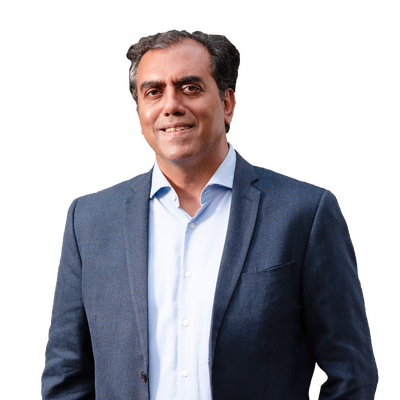The Entrepreneur-VC
- Published
- Reading Time
- 3 minutes
There is ample coverage around Entrepreneurs-turned-VCs.
For good reason – indeed, entrepreneurial and operations skills are desirable ingredients for a VC’s skill set. Examples abound, especially in the valley – Reid Hoffman (founder of Linkedin, now a partner @ Greylock), the Paypal “mafia” (now scattered across many valley VCs – Peter Thiel @ the Thiel Foundation; Roelef Botha @ Sequoia; Dave McClure @ 500 startups, and many others). India is also recently seeing such stories – all positively impacting the ecosystem.
However, there is lesser understanding around an emerging breed of fund managers, who mostly live in the early investor stage –
Meet the Entrepreneur-VC (or, the Entrepreneur-Fund Manager)
Many of us early-stage investors are examples of this breed (us Blume GPs included). At its essence is the genesis that most seed managers usually have to start from scratch, with limited institutional track records, foregoing salaries for the first year or two, operating with a small fee base, and having to embark on long arduous fund raising cycles – all at the same time finding the most interesting startups to fund and spend time with.
Why is this relevant?
It is helpful for entrepreneurs who approach us to better understand our ‘skin in the game’, what helps us understand a startup’s growing pains, and why at the end of the day we’re equal parts Fund Manager + ‘Entrepreneurs backing Entrepreneurs’.
[Caveat – @BKartred, my partner & co-founder at Blume will be penning more around our ‘Fund Raising Chronicles’ in the near future; however this piece is more about entrepreneur-fund managers and how we relate to the founders we back and live with].
Lets dive deeper into a few characteristics of the Entrepreneur-VC
- “We don’t back first-time fund managers” - Surprising feedback? Well, it's fairly de rigeur for institutional fund investors (Limited Partners, or LPs in fund management parlance) to not back first-time General Partners (GPs, or fund managers). So almost always, first-time seed funds are raised through informal networks of HNIs, family offices and other non-institutional investors. Meaning most GPs are forced to push their persistence and persuasiveness skill levels. Now – imagine if VCs gave this feedback to entrepreneurs – “We like you, but unfortunately, our Investment Mandate only allows us to back second or third-time entrepreneurs!”
- Our fees are capped - Unlike startup founders and their senior management teams whose salaries can get revised upward based on successive funding rounds, the total annual management fees GPs have to run their firms around are always capped. The management fee stays the same throughout the life of the fund. Fairly obvious, but the math can be quite limiting.
- Fundraising for funds is X times tougher than for startups - Our pitch is often like this – give me money, and then I’ll go and invest in 20-30 startups that “look like they’re run by an A+ team, have 1.5 decades of experience, and a distributed founding team across San Francisco, Singapore and Bangalore. Great! When can we meet these founders? Actually, we’ll need the money first to go and find them, and then we’ll fund them”. The sales pitch and process is usually a 12-18 month lifecycle; can you imagine a similar fund raise lifecycle for your startup?
- Skin in the game - It's again standard practice for the fund sponsor / GPs to invest their own monies in the funds they manage. Exactly the same skin in the game construct as startup founders. Yes, we bootstrap too!
At the end of the day, we find ourselves in the interesting position of being in equal part, Entrepreneurs (creating fund platforms, hiring teams, building brand) and Fund Managers (making prudent investments, helping them grow in value, harvesting them via exits, and returning gains to LPs) – then rinse and repeat, to raise our next fund.
That said, it's always the entrepreneurial drive in the first place that wakes up every day, propels us to often spend more time with our portfolio founders collectively than with our families, and makes us realize we have far more in common with the entrepreneurs we live in day, in day out – than perhaps with larger PE / growth capital / late stage investment firms.
So, if you ponder whether early stage investors really feel your pain, think of the above. You may already know the answer.


